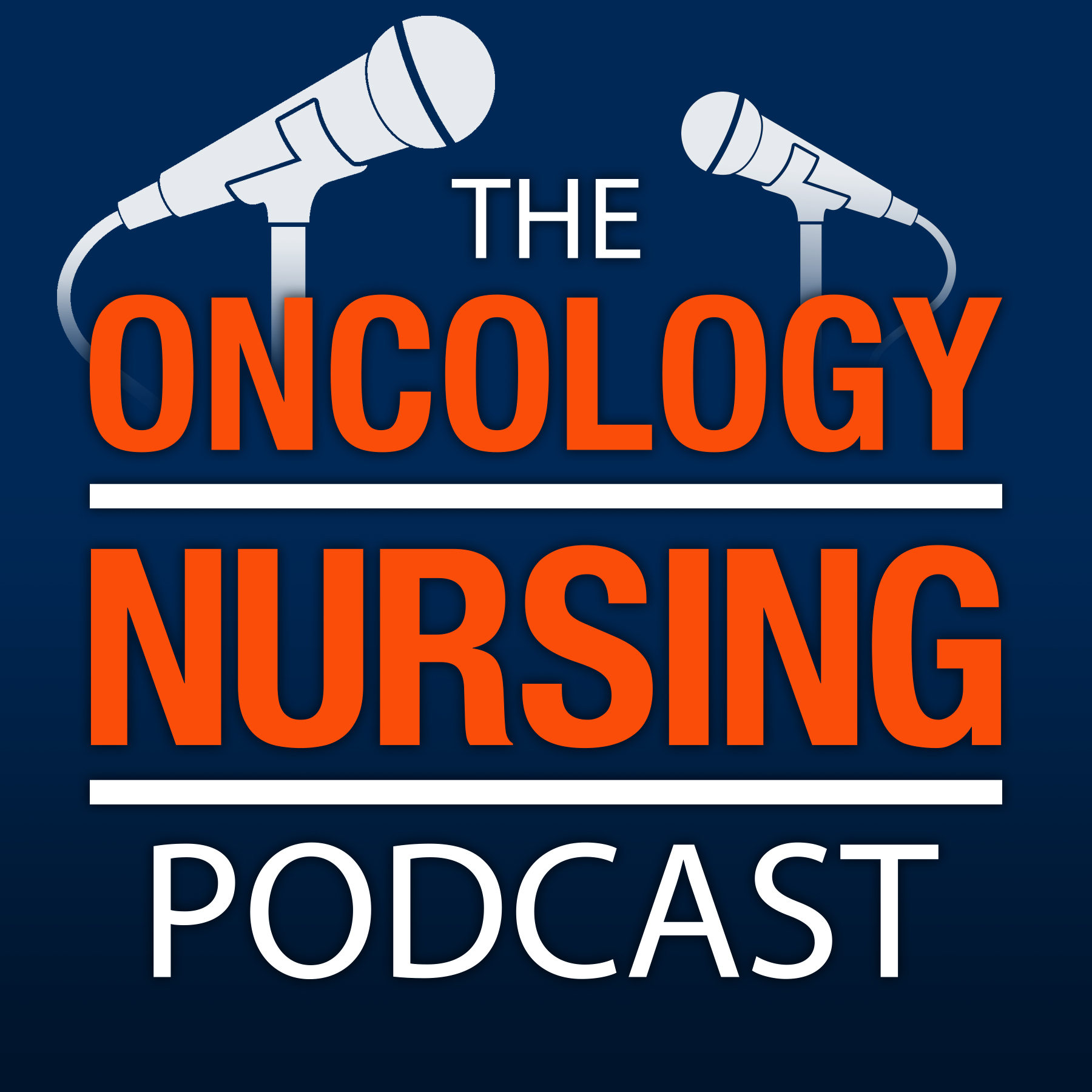
Episode 276: Support Young Families During a Parent’s Cancer Journey

The Oncology Nursing Podcast
Shownotes Transcript
“Reassuring doesn’t always mean providing solutions. Sometimes, it’s providing support. There are some key tips that can be helpful for supporting patients when they’re ready, when they’re asking, ‘What about my kids?’ Like, what are the things when you leave this hospital that your kids are going to see, hear, or notice? That’s a great place to start,” Kelsey Mora, certified child life specialist, licensed clinical professional counselor, and chief clinical officer at Pickles Group, a national nonprofit organization that provides support and resources to children and teens whose parents have cancer, told Jaime Weimer, MSN, RN, AGCNS-BS, AOCNS®, manager of oncology nursing practice at ONS, during a discussion about how oncology nurses can support young families during a parent’s cancer journey.
You can earn free NCPD contact hours after listening to this episode and completing the evaluation linked below.
Music Credit: “Fireflies and Stardust)” by Kevin MacLeod
Licensed under Creative Commons by Attribution 3.0
Earn 0.5 contact hours of nursing continuing professional development (NCPD), which may be applied to the care continuum, psychosocial dimensions of care, coordination of care, quality of life, and supportive care ILNA categories), by listening to the full recording and completing an evaluation at myoutcomes.ons.org) by September 8, 2025. The planners and faculty for this episode have no relevant financial relationships with ineligible companies to disclose. ONS is accredited as a provider of NCPD by the American Nurses Credentialing Center’s Commission on Accreditation.
Learning outcome: The learner will report an increase in knowledge related to supporting young family members during a parent’s cancer journey.
Episode Notes
Complete this evaluation for free NCPD.)
Oncology Nursing Podcast Episode 9: How to Support Adolescent and Young Adult Patients With Cancer)
ONS Voice articles
Nurse-Created Apps Help Pediatric Patients Find Their Voice and Navigate Their Cancer Journey)
Oncology APRNs’ Role in Communicating With Older Adults With Cancer)
Balance Hope and Quality of Life for Phase I Clinical Trials)
- Pickles Group)
Pickles Group Support Kit)
Association of Pediatric Hematology/Oncology Nurses)
*ONS book: This Should Not Be Happening: Young Adults With Cancer) *
Anticancer Research article: Impact of Parental Cancer on Children)
To discuss the information in this episode with other oncology nurses, visit the ONS Communities).
To find resources for creating an ONS Podcast Club in your chapter or nursing community, visit the ONS Podcast Library).
To provide feedback or otherwise reach ONS about the podcast, email [email protected]).
Highlights From Today’s Episode
“I think there’s a concern that young kids won’t understand or won’t remember, and what we actually see is that even the youngest kids can really pick up on changes in their environment. So, when there’s a cancer diagnosis, there is inevitably unavoidable change and disruption, whether it be to caregiving routines, availability, schedules, their appearance and ability status, hospitalizations, and certainly observed emotions. Kids are curious at all ages, so they pick up on things and they try to make sense of things on their own. And so, my role is really around helping nurses help parents and parents help their kids understand what’s going on so that they’re not left trying to figure it out on their own.” TS 3:52
“Providing kids with honest and age-appropriate information is about providing them with a narrative to make sense of what’s going on, and so it is honest, but it is age appropriate to kind of tailor it to the age or development of the child.” TS 5:03
“Pickles Group was born out of finding families where kids were saying, you know, ‘I want to meet other kids who can relate to this,’ because the second there is a cancer diagnosis, they feel really different from their friends and their peers. And so being able to connect with others who can understand more of their experience is super important.” TS 5:48
“I always tell parents that ‘I don't know’ is a real answer. That’s an honest answer, right? Being able to say, ‘You know, that's a great question. I don’t know the answer right now, but as soon as I do, I'll definitely talk about it with you.’” TS 9:35
“I think it’s so important to normalize that grief occurs the second that there is a diagnosis, because there is so much change and transition and loss and uncertainty. A lot of times for kids, that’s just like the loss of the way things were before or the loss of being able to relate to peers or the loss of the things that my parent was able to do before or just them not being around as much.” TS 16:32